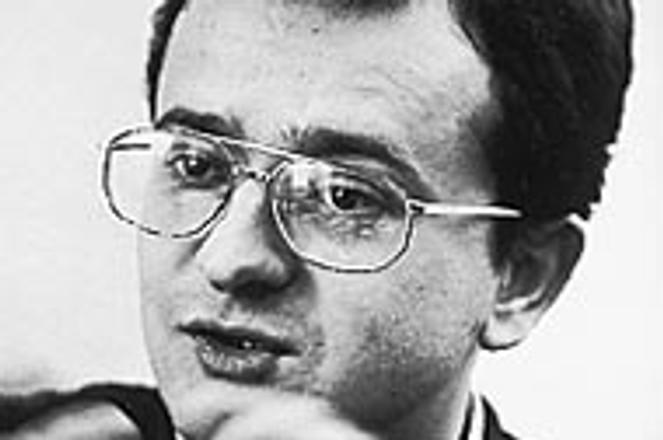"Since the entire foundation of Slovak-Russian relations...has been constructed with the Chernomyrdin government since 1993, it is in Slovakia's interests for that government to continue."
Alexander Duleba
Post-election Russia will be substantially different from pre-election Russia, even if president Yeltsin retains his office. It took a close victory over the Communist candidate, Gennady Zyuganov, in the first round to force the "King of the Kremlin" to learn the art of coalition politics. His alliance with General Aleksander Lebed, who came third, will be the major new feature of domestic politics in Russia. Thanks to the powers that the constitution invested in him in 1994, Yeltsin's rule has been autocratic; he has not needed to share power with anyone. After this year's elections, however, he cannot afford such a luxury.
But more significant than Yeltsin's transformation from autocrat to coalition politician is the departure of three generals and a former vice-premier from Yeltsin's inner sanctum. This is historic for a man who, since 1992, had sacrificed on the altar of state power only members of his reform-minded circle from the late '80s and early '90s. Now, for the first time, he is forced to get rid of his closest allies from the military! The departure of this foursome, which represents the interests of the country's so-called "power sector" (the army, the secret service and the arms industry) is a victory for the "civilian" cabinet faction, headed by Viktor Chernomyrdin. The change in leadership in the power sector after the first round of presidential elections means that Russia has the chance to become a much more civil country than it has been. This is provided that Yeltsin wins the second round.
A victory for Zyuganov could reverse the process and plunge Russia into chaos. Zyuganov announced that he would introduce 50 legal regulations as soon as he got into power. Among the first would be laws revising privatization and ensuring the nationalization of the oil and gas industries. In other words, Zyuganov wants to assume control of the jewels in Russia's raw materials crown and of the property of Russia's wealthy, whose interests are represented by Chernomyrdin. In Russia power can be wrested on a wave of popular dissatisfaction, but long term governance is not possible without the support of economic structures, which Zyuganov and the Communists lack. So those who wish for a stable, if not completely democratic, Russia cannot hope for a Zyuganov victory. The one precludes the other.
Since the entire foundation of Slovak-Russian relations (comprising 68 new agreements and 44 still valid from the Czecho-Slovak federation) has been constructed with the Chernomyrdin government since 1993, it is in Slovakia's interests for that government to continue. Chernomyrdin's premiership, though, can only be guaranteed by a Yeltsin victory. The arrival of a new team could radically alter Russia's bilateral relations with any country. We would have to start from square one, which would involve more effort, time and cost, with an unpredictable outcome.
From the wider, international point of view, Russia's stance on NATO is crucial for Slovakia. On this issue both Yeltsin and Zyuganov have taken a similar, negative view. In Yeltsin's favor, however, is his years of communication with the West. And there is the assumption that, were he to remain in power, the unstoppable expansion of NATO would not spiral out of control and lead to a straining of the international political atmosphere. If Zyuganov wins, we can expect the opposite. The crystallization of two large integration movements in the West and the East (the EU and the CIS) serviced by two military blocks (NATO and the Tashkent Pact) is, it seems, just as inevitable. Slovakia wants full membership in NATO, but achieving this depends much more on Slovakia's foreign and domestic policies than on Russian political events. We should not forget this, despite the oft-repeated declaration of the need to "take into account Russian interests." We must consider our own interests above all else!
Alexander Duleba is an expert on Russia with the Research Center of the Slovak Foreign Policy Association.
Author: Alexander Duleba


